
- Home
- Pakistan
- Pak-Saudi defence pact seen as game-changer for regional security, deepening economic cooperation in ..
Pak-Saudi Defence Pact Seen As Game-changer For Regional Security, Deepening Economic Cooperation In Multiple Sectors
Fahad Shabbir (@FahadShabbir) Published September 20, 2025 | 02:10 PM

PESHAWAR, (UrduPoint / Pakistan Point News - 20th Sep, 2025) In a significant development hailed as a strategic milestone, Pakistan and Saudi Arabia have signed a comprehensive defence cooperation agreement poised to reshape the security landscape of both the middle East and South Asia.
The pact signed by Prime Minister Muhammad Shehbaz Sharif and Saudi Crown Prince and Prime Minister Muhammad bin Salman at Riyadh, is being viewed as a pivotal step in transforming longstanding bilateral ties into a dynamic and actionable security partnership.
While Pakistan and Saudi Arabia have traditionally shared close relations rooted in shared religious, cultural, and strategic interests, this new accord signifies a major evolution from symbolic goodwill to institutionalized defence collaboration.
Defence analysts describe the agreement as a defining moment, formalizing decades of informal military cooperation dating back to the 1960s.
“This agreement represents a new chapter in our strategic relationship,” said Adnan Sarwar Khan, former Chairman of the International Relations Department at University of Peshawar while talking to APP.
“Pakistan remains committed to peace and stability in the region, and this pact reinforces that commitment through a structured partnership.”
He emphasized that the agreement comes at a time when both Islamabad and Riyadh are recalibrating their foreign policy and security objectives.
“For Saudi Arabia, diversifying its defence partnerships is central to Crown Prince Mohammed bin Salman’s Vision 2030—a strategy aimed at reducing reliance on Western military suppliers and strengthening regional autonomy,” he added.
For Pakistan, facing economic headwinds and regional security pressures, the agreement not only serves as a diplomatic win but also opens doors for strategic investment and defence industry cooperation.
Senior defence analyst Brigadier (Retd) Mahmood Shah said that the pact was likely to go far beyond joint drills or intelligence sharing.
“This reflects a long-term vision where Muslim-majority countries aim to enhance intra-regional defence cooperation and reduce dependence on external powers,” he said.
Mahmood Shah added that the agreement could shift the navel balance and energy security calculus in the Arabian Sea developments likely to be closely monitored by India and Iran besides security architecture in the region.
Professor Dr. Zilakat Malik, former Chairman of the Economics Department at the University of Peshawar, underscored the agreement’s potential economic impact.
“This could bring much-needed investment into Pakistan’s defence production and offer Saudi Arabia a springboard to develop its own indigenous arms industry,” he said.
He explained that enhanced defence ties could lead to job creation, technology sharing, and increased defence exports, helping Islamabad to alleviate macroeconomic challenges, including reliance on IMF bailout packages.
“Saudi Arabia has historically supported Pakistan through oil on deferred payments and loans. Strengthening this relationship could ease some of Pakistan’s financial burdens,” he added.
Former Ambassador Manzoorul Haq emphasized that both countries are leveraging their respective advantages i.e Pakistan’s military capability and Saudi Arabia’s economic strength.
“Prime Minister Shehbaz Sharif has been actively working to stabilize Pakistan’s economy and this agreement fits within a broader strategy of seeking sustainable partnerships,” he said.
Pakistan’s defence exhibitions, including the showcasing of the JF-17 Thunder that is a multi-role fighter jet co-developed with China signal Islamabad’s readiness to expand military exports. With Saudi Arabia’s close ties to China, a triangular cooperation involving the JF-17 may well be on the table.
Asked whether Pakistan could expect further economic relief from the Kingdom, including deferred oil payments and investment pledges, Ambassador Haq was optimistic and said "Given the historic nature of this agreement, economic support is certainly anticipated. Both countries signed deals worth $2.8 billion in October 2024, and trade volumes are expected to rise,” he said.
Investor confidence has already surged in response to the pact. The benchmark KSE-100 Index rose by over one percent on Thursday, closing at a record 157,953 points which is an increase attributed directly to market optimism over the agreement.
“The pact is likely to ease Pakistan’s financial strain and improve bilateral relations in trade and investment,” he added.
In a great symbolic gesture reflecting the importance of the visit, the Saudi Royal Air Force escorted Prime Minister Shehbaz Sharif’s plane into Saudi airspace. Upon arrival, the Pakistani flag was hoisted in Riyadh, and the Prime Minister was received with full honours, accompanied by Chief of Army Staff Field Marshal General Syed Asim Munir.
As the ink dries on this landmark agreement, both Islamabad and Riyadh appear committed to converting their long-standing brotherhood into a strategic partnership suited for the challenges of the 21st century.
If successfully implemented, the accord may serve as a blueprint for broader military alliances within the Muslim world, marking a shift from reactive defence to proactive, cooperative security frameworks.
APP/fam
Recent Stories
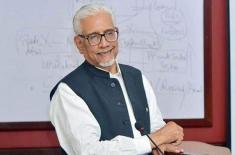
Ex-Federal minister Dr. Waqar Masood passes away
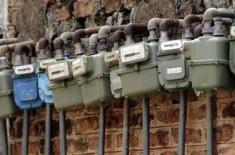
Govt eases RLNG connections for consumers with paid demand notices

Data of 300,000 Hajj applicants found on dark web
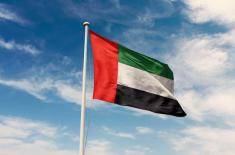
UAE marks International Day of Peace with leading role in crisis resolution, sta ..

UAE leaders congratulate President of Nepal on Constitution Day

Floodwaters wash away another section of M-5 motorway

FBR to take action against social media display of wealth
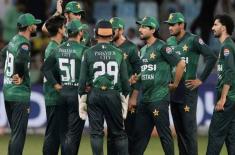
Pakistan team admits batting failures ahead of India clash
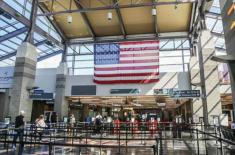
Trump sets $100,000 annual fee for H-1B worker visas

Mysterious changes near Earth’s core revealed by satellites

Over 1,800 flights disrupted at Dallas airports due to telecom
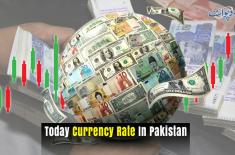
Currency Rate In Pakistan - Dollar, Euro, Pound, Riyal Rates On 20 September 202 ..
More Stories From Pakistan
-
Pak-Saudi defence pact seen as game-changer for regional security, deepening economic cooperation in ..
8 minutes ago -
Revolutionary mobile HMIS mobile app launched at Ayub Medical Complex Abbottabad
28 minutes ago -

Data of 300,000 Hajj applicants found on dark web
37 minutes ago -
ACS South donates 660 life jackets for doctors,paramedical staff serving at boat clinics in flood-af ..
48 minutes ago -
CM Gilgit-Baltistan expressed condolences with bereaved family of Baba Chilasi on his passing
48 minutes ago -
5 suspects of Afghan ‘9T6 group’ held as ICT Police recover illegal arms
48 minutes ago
-
President, PM grieved over Dr Masood’s death
48 minutes ago -

Floodwaters wash away another section of M-5 motorway
1 hour ago -
Professional management course participants visits RPO office
1 hour ago -
Senator Afnan Ullah demands swift data protection law to safeguard national security
1 hour ago -
IAEA praises Pakistan’s partnership, progress in peaceful nuclear programme
1 hour ago -

FBR to take action against social media display of wealth
1 hour ago


